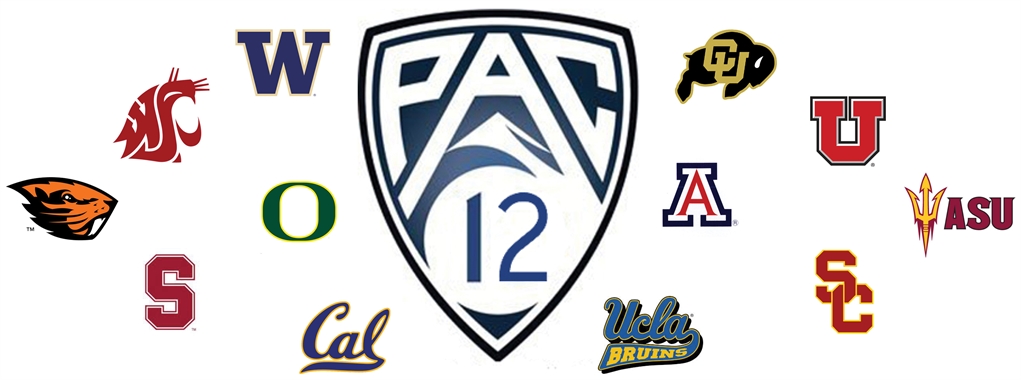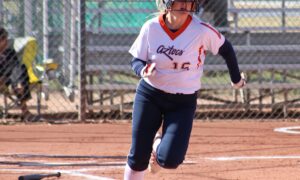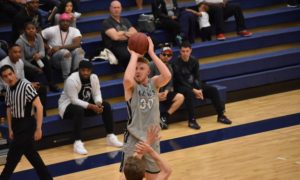(San Francisco, CA) The Pac-12 announced today that the Conference’s Student-Athlete Health and Well-Being Initiative (SAHWBI) has selected three research projects for funding as part of its grant program for the 2020-21 year. In addition, the Pac-12 SAHWBI also announced the formation and funding of a Pac-12 Mental Health Coordinating Unit which will support student-athlete mental health programs and research. The University of Arizona has been selected to serve as the Pac-12 Mental Health Coordinating Unit, and provide services related to, supporting and implementing the SAHWBI mental health initiatives among Pac-12 Press Release courtesy of the PAC-12 Conference.
“As administrators and leaders, continuing to focus on improving the health and well-being of student-athletes is of our highest priority,” said Pac-12 Commissioner Larry Scott. “We are proud to continue to help fund important research and work being done by our Pac-12 institutions and excited to announce the formation of our Pac-12 Mental Health Coordinating Unit to focus specifically on student-athlete mental health.”
With today’s announcement, the Pac-12 SAHWBI continues to provide funding for research projects across Pac-12 universities in order to strengthen and improve the health, general well-being and safety of student-athletes.
Pac-12 SAHWBI Research Grants
The grant program of the Pac-12 SAHWBI has made it a priority to fund cutting-edge research by pooling the collective expertise of Pac-12 universities, who are home to some of the foremost research in them world. Research projects selected for funding each include a lead Pac-12 university, while the research results are accessible to and ultimately provides a positive impact for all Pac-12 institutions. For the 2020-21 cycle of grant funding, projects selected include:
Head Trauma: Advancing New Biomarker Tests for Concussion Diagnosis and Recovery (California).
The human brain is impacted by blood flow with each heartbeat with 25 percent of cardiac output directed toward the head. This flow generates a measurable pulse through the brain described by this study as the “headpulse.” This pulse can be measured noninvasively via a portable device.
Developing the practice for measuring this biomarker will alleviate current challenges in predicting concussion resolution due to a lack of objective indicators.
This study will also aim to characterize the brain’s recovery from sports-related concussions using an approach comprised of intermittent headpulse measurements in addition to current common practices.
Injury Prevention: Documenting Overuse and Non-Time-Loss Injuries (Oregon State)
Sports injury epidemiology has historically excluded overuse and non-time-loss injuries. Instead, research has focused on acute and time- loss injuries, despite the potential for overuse and non- time-loss injuries to hinder performance and influence long-term health.
This study seeks to report the epidemiology of overuse and non-time-loss injuries across multiple Pac-12 sports while also identifying potential factors that may influence the occurrence of such injuries.
The study will also look to report on the workload burden for healthcare utilization associated with treatment of such injuries.
Conducting the research will help identify risk factors for overuseand non-time-loss injuries as well as provide details on the number and types of treatments and encounters.
Results of this study will help inform decisions regarding injuryprevention, holistic health and appropriate medical coverage, as the study’s findings will be of use for all sports medicine clinicians across the Pac-12.
Injury Prevention: Utilizing Ultrasound Imaging to Detect Precursors of Achilles Tendon, Patellar Tendon and Plantar Fascia Injuries (Utah)
The patellar tendon, Achilles tendon, and plantar fascia are common athletic injuries. These often result in prolongedrecovery times, decreased performance and can also derail promising athletic careers.
This study seeks to develop a method of using brief preseaso ultrasound examinations of the bilateral patellar tendon, Achilles tendon.
With the collaboration of select Pac-12 universities, the examinations will be performed prior to each academic season for a total of three years, first identifying subgroups of student athletes with tendon and/or fascia abnormalities and those without before looking closer at those who develop such injuries as seasons progress.
This research will provide impacts in the short-term by creating an easily-implemented procedure to help identify such injury risks as well as long-term by helping develop strategies to prevent future tendon and/or fascia abnormalities and those without before looking closer at those who develop such injuries as seasons progress.
Pac-12 Mental Health Coordinating Unit
With the University of Arizona and Dr. Daniel Taylor selected by the Pac-12 SAHWBI Board to establish the newly-funded unit, the charge of the Pac-12 Mental Health Coordinating Unit is to:
Support student-athlete mental health related programs and research.
Facilitate the integration of relevant mental health variables used in clinical documentation on the Pac-12 EHR (a conference-wide injury and health record system being utilized for clinical research and analysis).
Establish mental health screening methods consistent with NCAA best practice recommendations to be implemented at each Pac-12 university.
Facilitate policies and procedures that address positive mental health screening methods.
Report on epidemiological outcomes at the end of the study’s period with an initial phase of activities set for three years.
2020 Student-Athlete Mental Health Summit
The formation of the Pac-12 Mental Health Coordinating Unit continues initiatives by Pac-12 universities to focus on student-athlete mental health. In January, the Pac-12 SAHWBI, in partnership with the NCAA and hosted by UCLA at the university’s Luskin Conference Center, held the first-ever Student-Athlete Mental Health Summit. The two-day event provided a unique opportunity for exchange among national and international leaders on the important issues surrounding mental health. The event convened over 300 attendees from across the sports landscape to discuss topics related to mental health and athletics, including coaches, team physicians, athletic trainers, athletics directors and current and former student-athletes.
















